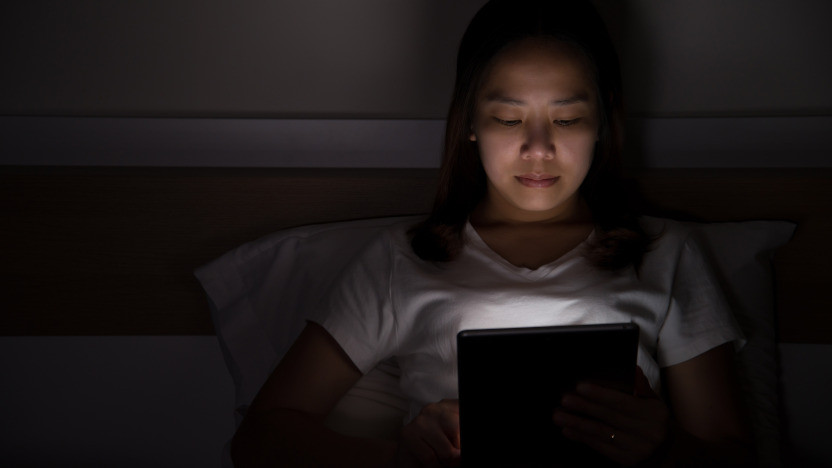Blue Light: What It Is And How It Hurts Vision
Posted by EyePromise on Oct 29th 2015
When you wake up in the morning, what’s the first thing you do? Many of us grab our cell phones. This means that the first thing we do in our daily lives is expose our eyes to blue light, which can damage vision and can make our eyes feel tired and strained.
Average Time Spent On Digital Screens
According to a survey by eMarketer, the average American spends about two hours and nineteen minutes online, plus another two hours and twenty minutes on tablets and cell phones. Additionally, recent Nielsen ratings reveal that the average American spends about thirty-four hours per week watching live television, and another three to six hours watching recorded programs.
We use our eyes much differently than prior generations. Dramatic shifts in digital tool usage and media consumption are exposing our eyes to blue light from electronic devices, which could adversely affect our vision in the future.
Blue Light Protection
We’re all born with something called macular pigment, which consists of two important nutrients: dietary zeaxanthin and lutein. These pigments provide protection for the back of the eye. Forming a protective layer that acts like “internal sunglasses,” they protect the rods and cones found in the back of the eye that are responsible for central and peripheral vision. Additionally, this protection also enhance visual functions like light sensitivity, glare recovery, and contrast sensitivity.
Building Your Natural Protection
Although zeaxanthin and lutein are found in the back of the eye, the body does not produce the nutrients, which means we must consume food that contains them. If we do not eat enough foods that contain zeaxanthin and lutein (dark leafy greens, orange peppers, corn), our macular pigment will become less dense, which leaves us defenseless against harmful blue light exposure. Considering the typical American diet, a significant zeaxanthin dietary gap exists.
Fortunately, taking eye vitamins with dietary zeaxanthin and lutein is proven to protect our vision by building up our macular pigment, just like carotenoid rich foods do! EyePromise offers clinically proven eye vitamins that are guaranteed to support a healthy macular pigment. Find out which EyePromise vitamin is right for your eyes!

